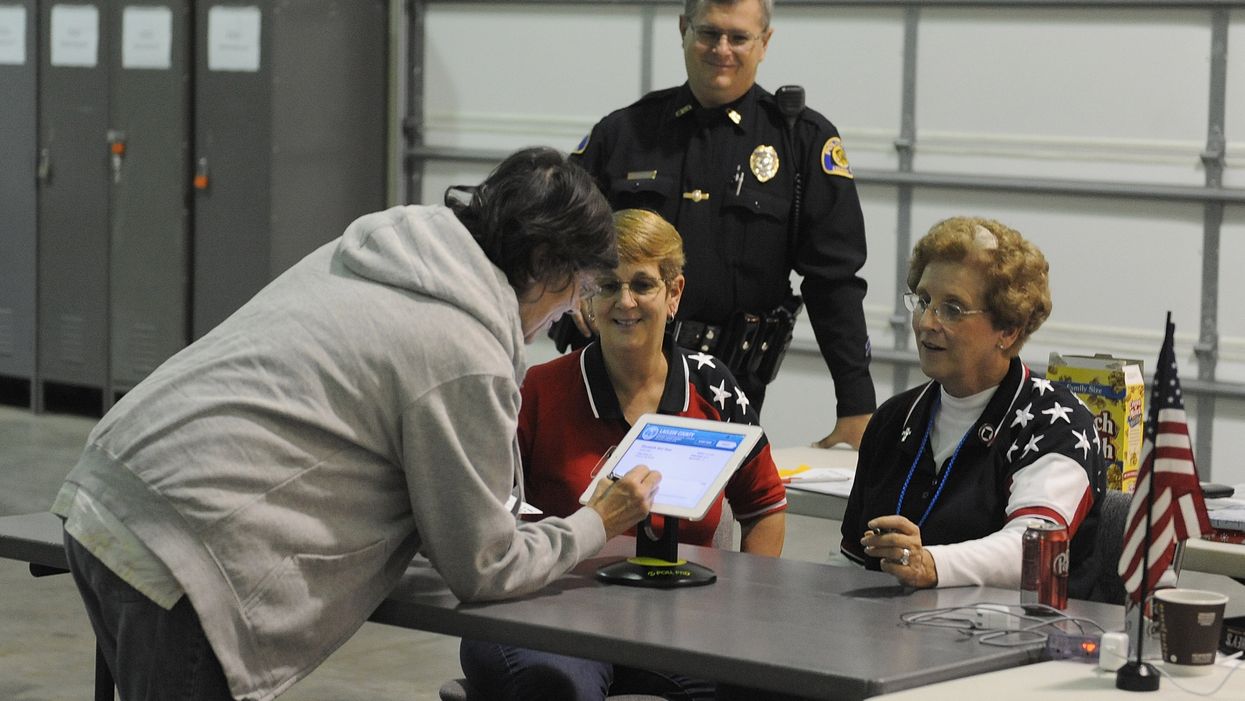A key part of Missouri's new and strict voter identification law has been struck down by the state's highest court.
The decision has potential nationwide importance. That's because the provision at issue, which allows people without photo IDs to cast ballots only after signing sworn statements, is similar to laws recently enacted in several other states.
Those have been labeled by critics, mostly Democrats, as thinly veiled voter suppression efforts, because poor, elderly, disabled and minority voters are less likely to have photo IDs or be agreeable to signing affidavits. But proponents, mainly Republicans, label such rules an appropriate guardrail against fraud.
This week, the Missouri Supreme Court ruled 5-2 that the affidavit newly required by a state law, but never implemented while it's been challenged in court, was "misleading" and "contradictory." The law was written to carry out a state constitutional amendment, approved with 63 percent support by voters in 2016, authorizing implementation of a photo ID law.
The law permits people without a valid government-issued photo ID card to cast a regular ballot by presenting another form of ID — including a utility bill, bank statement, paycheck or college ID — and signing an affidavit that they are who they say they are but don't possess "a form of personal identification approved for voting."
The state's high court concluded that was an impermissible muddle, because it required people to simultaneously confess that they didn't possess a valid ID but at the same time allowed them into the voting booth by showing an ID.
"Although the state has an interest in combating voter fraud, requiring individuals ... to sign a contradictory, misleading affidavit is not a reasonable means to accomplish that goal," Judge Mary Russell wrote for the majority.
GOP Secretary of State Jay Ashcroft said the decision had "eviscerated" rules that were implemented with broad public support evidenced by the referendum.
The case resulted from a suit brought on behalf of several voters by Priorities USA, a Washington-based liberal advocacy group that labeled the requirements a "constitutional farce" that threatened to disenfranchise 220,000 voters.
Whether those people vote or not, Missouri's 10 electoral votes look to be a lock for President Trump in November. He carried the state by 18 points last time.




















Trump & Hegseth gave Mark Kelly a huge 2028 gift